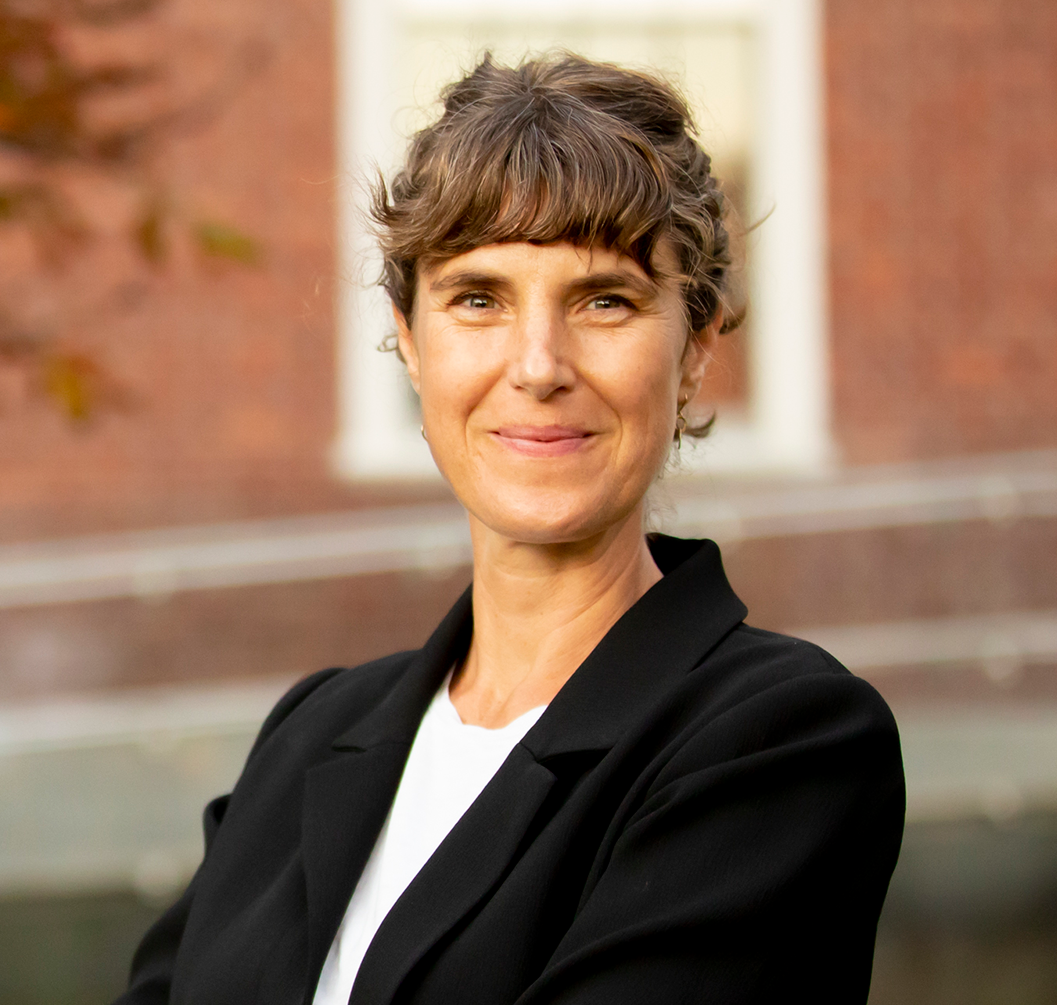Christy Denckla (she/her) joined the SBS Department in July 2021 as an Assistant Professor of Social and Behavioral Sciences and a licensed clinical psychologist. Her work, supported by an early career K23 award from National Institute of Mental Health, aims to understand how adversity affects mental health and well-being across the lifespan, with a particular focus on bereavement and adaptive processes. Denckla received a PhD in Clinical Psychology at Adelphi University, completed her doctoral clinical fellowship at Massachusetts General Hospital, Harvard Medical School, and her postdoctoral fellowship at HSPH in the Department of Epidemiology. She is also a faculty member of the Department of Psychiatry at Massachusetts General Hospital, and an Associate Member of the Broad Institute of MIT and Harvard.
Could you tell us about your research background and what drew you to the SBS Department?
Most broadly, my research aims to understand the impact of adversity on human potential and well-being. To this end, I focus on understanding both the risk and resilience mechanisms associated with posttraumatic psychopathology, as well as factors associated with well-being and adaptation. Bereavement is a particular interest of mine because it is one of the most common traumatic exposures wherein the acute and severely disruptive experience of loss and grief is expected to remit over time as loss is integrated. Studying this recovery process at the population health level, as well as the factors that increase risk for a prolonged clinical course, can hopefully inform our broader understanding of adaptation and recovery in population mental health. To advance this line of work, I use both my experience in clinical psychology and training in epidemiology to describe the complex interplay between structural factors, neurocognition, and biological processes (i.e. genetic risk) that influence mental health outcomes after trauma exposure. An ongoing area of focus, which is one of the many reasons why I was drawn to the SBS department, is to examine how social determinants influence not only exposure to trauma, but also mental health response after exposure. For example, results from an ongoing study using data from the National Comorbidity Study – Adolescent (NCS-A) supplement, confirms existing evidence that Black youth are at higher risk of experiencing the death of a parent relative to White youth. However, we also find evidence that parental education levels also pattern exposure risk. For youth with parents who have fewer years of education, risk of parental death is higher, relative to youth of parents with more years of education. This effect holds across all three racial/ethnic groups of Black, White, and Hispanic youth, suggesting that risk for parental bereavement in childhood is influenced by intersecting social determinants. SBS faculty and students are leading transformative research in social determinants and health, and I am so looking forward to learning and building collaborations to continue discovery in research that helps children and adults live full, healthy lives.
In Scientific Reports, you and others recently published a study that examined the connection between childhood maltreatment and neurocognitive health among South African women. What did you learn from this study?
This is a really interesting study to discuss here because it illustrates how an interdisciplinary team with expertise in neuropsychology, psychiatry, social epidemiology and clinical psychology can cross-pollinate methodologically and conceptually to yield insights on the adverse impacts of childhood trauma on cognitive health. Typically, in posttraumatic mental health research, we compare groups of affected and unaffected individuals looking at mean differences between the two groups on a particular measure of interest (in my case neuropsychological test scores). To do so, we assume constant error variance (homoscedasticity). But what if this assumption isn’t warranted? What if individuals vary in meaningful patterns, and understanding what drives this systematic variation can inform targeted, personalized intervention or prevention? To test this idea, we asked if exposure to childhood maltreatment was associated with increased individual-level variability independent of average effects. Working with an interdisciplinary international team including SBS faculty Subu Subramanian, Rockli Kim (now Assistant Professor at Korea University) and MPH student Sunyeop Lee, neuropsychologist Jennifer Vasterling at the VA Boston Healthcare System, as well as Georgina Spies and Soraya Seedat at Stellenbosch University in South Africa, we tested our idea using data from a study on brain health and childhood adversity among South African women. Results suggested that there was indeed evidence for systematic individual-level heterogeneity in cognitive function not discernable by a focus on mean differences between exposed and unexposed groups alone. One implication of our findings is that systemic factors, beyond the demographic and mental health variables we controlled for, likely influence the association between childhood maltreatment exposure and some aspects of brain health. Further lines of research will focus on identifying these drivers, potentially educational attainment, social support, or neighborhood-level assets, because with this knowledge we will be able to develop more tailored and targeted interventions for vulnerable individuals.
What SBS courses are you planning to teach? What do you want students enrolled in your courses to take away from the learning experience?
I am currently developing my courses, but am looking forward to teaching content in research methods and psychiatric epidemiology of trauma and bereavement. I would love students to take away inspired ideas and foundational skills to explore their own research interests in the areas that they are passionate about. I believe learning is about asking questions, and then following our curiosity to find those answers.
What avocations do you enjoy outside of academia?
I have two young children, aged 5 and 7, who keep me busy with avocations such as sledding in the winter, ice skating, building sand castles, snuggling, packing lunches, and constructing elaborate Lego structures. In addition to continuing to sharpen my skills in these areas into 2022, I am looking forward to a 5-day solo walking trip in Scotland this spring.
How can the SBS community learn more about you and your research?
My website is under construction so in the meantime my publications can be found on google scholar or on pubmed.




